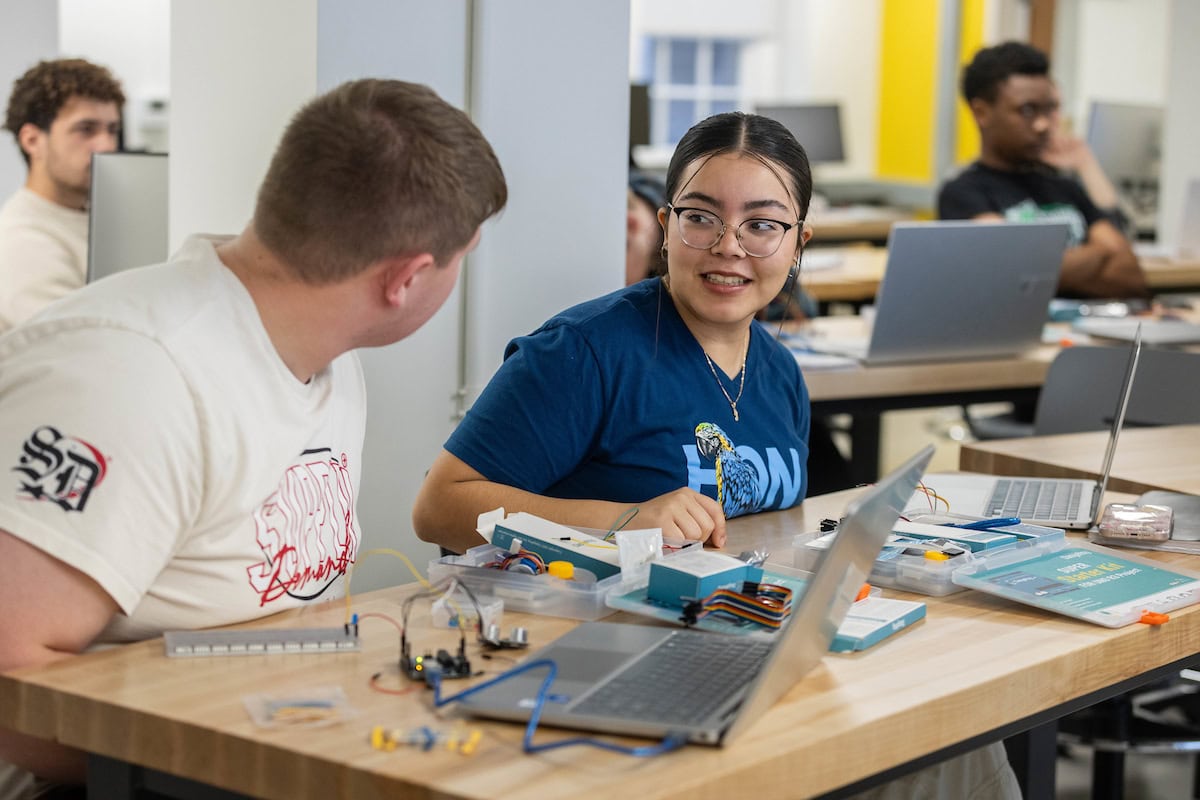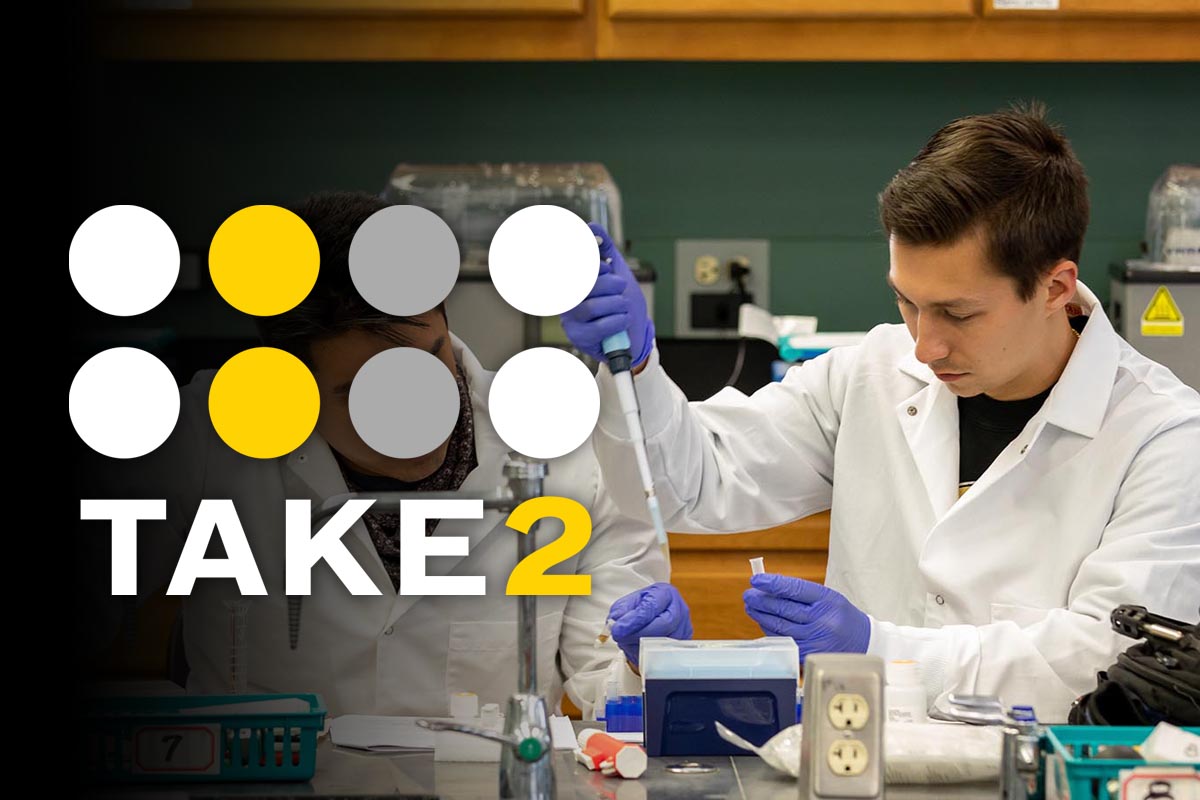Randolph announces three new undergraduate programs

Randolph College has again expanded its academic offerings with the addition of three new undergraduate programs for 2025-26: cybersecurity, cognitive science, and mechanical engineering.
“Through faculty ingenuity, we have effectively built upon existing foundations in psychology, computer science, and robotics and mechatronics engineering to develop these new majors,” said Tim Smith, provost and vice president for academic affairs.
Teams of faculty and staff submitted new program proposals in the fall, responding to specific interests and requests from current students, alumnae, and alumni.
Randolph College President Sue Ott Rowlands commended their efforts when the programs were announced in November, noting that the proposals “demonstrate careful research and inspiring creativity.”
Cybersecurity
Cybersecurity is the study and practice of protecting computer systems, networks, and data from digital attacks, damage, or unauthorized access. It relates to a variety of disciplines, including cryptography, law and ethics, psychology, business, forensics, and criminal justice.
Core courses for the major will include foundational computer science courses and specific classes in network security, web security, ethical hacking, and cryptography. Students will also select additional courses in computer science, mathematics, business, and criminal justice.
According to the National Science Foundation, the field is in demand, with more than half a million unfilled cybersecurity positions in the United States.
“For several years, cybersecurity has been one of the most requested majors by students expressing interest in the College,” said math professor Marc Ordower. “Cybersecurity at Randolph builds on the solid foundation we’ve established in our computer science program.”
Cognitive Science
Cognitive science—the study of the mind, how knowledge is acquired, and how these principles are practically applied—is similarly multidisciplinary, with courses in psychology, philosophy, linguistics, computer programming, and statistical analysis.
The major will focus on understanding foundational theories about the mind while developing technical skills.
“In my classes, I have noticed that students are always interested in the applied side of cognition,” said psychology professor Blair Gross. “For example, how does what we know about the mind inform other areas of study? How can we use this knowledge in creative problem solving, and to improve human and technological interactions, software interfaces, product design, marketing, and more?”
The career and research possibilities are growing exponentially. Recent studies centered around cognitive science have used machine learning techniques to link spending behavior with personality traits, as well as algorithms to predict risky decision-making behavior or to discover neural activity patterns in comprehending abstract scientific terms. Scientists have also developed models to predict signs of depression and anxiety in speech patterns.
“It is a fast-growing career path at much larger institutions,” Gross said. “We are proud to be one of the few private, liberal arts colleges in Virginia making this field of study accessible to our students.”
Mechanical Engineering
Mechanical engineering is among the most popular subfields of engineering, and the new program builds on the success of the robotics and mechatronics major that launched this past fall.
Like robotics and mechatronics, it will be ABET accredited.
Robotics and mechatronics engineering professor Siavash Sattar calls the new major an exciting step forward for the College.
“Mechanical engineering is a versatile and foundational discipline that plays a crucial role in various industries, from robotics and automation to sustainable energy and advanced materials,” he said. “As companies search for engineers with practical expertise, problem-solving skills, and hands-on experience, this program is designed to provide our students with the knowledge and hands-on training needed to succeed in a fast-paced tech world.”
Randolph College majors, minors and academic programs > > >
Tags: cognitive science, computer science, cybersecurity, mechanical engineering, new programs, psychology, robotics and mechatronics, robotics and mechatronics engineering, Science Matters, Vita Spring 2025
